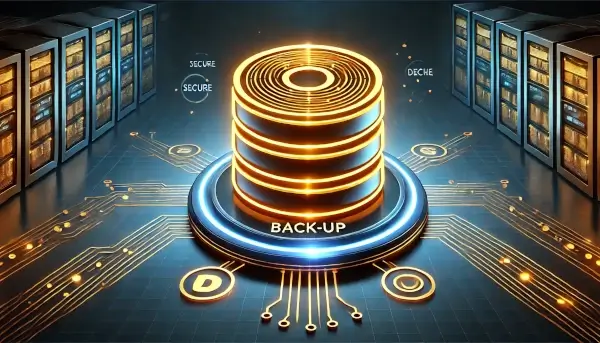
If you operate digitally, whether hosting an e-commerce site or handling large quantities of data, then getting the right server hosting should be high on your list of priorities.
But with a multitude of options out there, it can be hard to know which will be the best fit for you. If you're looking to crunch the numbers, you might be tempted to go for shared hosting as a cost-effective option. If scalability is important to you, then the flexibility of cloud hosting might appeal.
However, if reliability is the name of the game and you need your business to run like a well-oiled machine with minimal disruptions, then dedicated servers may well be your best bet. Why? Well, let's look at ten key benefits of using a dedicated server for your business.
Table of Contents:
1. Unmatched Performance
2. Improved Reliability and Uptime
3. Scalability to Match Your Growth
4. Greater Security
5. Customizability
6. Full Control
7. Faster Load Times
8. Dedicated IP Address
9. Cost-Effective in the Long Run
10. Backup and Recovery Options
Conclusion
1. Unmatched Performance

Comparing shared hosting to having your own dedicated server is a bit like trying to throw a party in a busy bar versus having your own private function room.
With a dedicated server, you don't share resources with other users. So, the CPU, RAM, and storage are all yours. What does this mean for your business operations? It generally means that your website or applications will run faster and smoother, and you can handle more traffic without any problems.
That can all translate into better experiences for your team and your customers. For example, if you're running an e-commerce site, you need your server to be able to handle spikes in traffic during busy periods, like flash sales, without slowing down and frustrating your customers. Or perhaps you're running some data analysis - you don't want to find your system grinding to a halt during peak user activity, such as when running month-end reports!
Dedicated servers ensure everything runs as it should and performance isn't compromised, even during peak times.
2. Improved Reliability and Uptime

Downtime is every business's worst nightmare. It's not just the inconvenience of sitting around waiting for your systems to come back online — every minute can mean lost revenue, unhappy customers, and damage to your reputation.
If you want to avoid costly downtime, then dedicated servers definitely offer unmatched reliability. When you're not sharing server space, you can avoid issues caused by other users' activities – like someone else's site hogging all the bandwidth or crashing the system.
For extra peace of mind, most dedicated server providers offer service-level agreements (SLAs) that guarantee a certain percentage of uptime (often exceeding 99.9%). With server uptime monitoring, you can ensure that your systems are continuously tracked for performance and that issues are addressed immediately.
3. Scalability to Match Your Growth

As your business grows, your server's demands will increase, too. You might need more storage or extra processing power to handle more data and users. If your website is becoming more popular and seeing increased traffic, or you're running resource-intensive applications, you might need higher bandwidth.
Unlike shared hosting, where you're typically limited to your slice of the pie regarding resources, dedicated servers can easily be upgraded to accommodate your growing needs.
Think of it as moving into your very own spacious house with plenty of room to extend and expand versus trying to renovate a tiny apartment. With dedicated servers, you don't have to worry about outgrowing your hosting solution — you can just add on as and when you need to.
Remember, it's still worth optimizing your tools to be as efficient as possible. For instance, you can use legacy modernization to ensure that your systems can seamlessly scale along with your infrastructure or by culling old apps you no longer use.
4. Greater Security

It doesn't matter how tight your security procedures are with shared hosting, you're always at the mercy of other users' security practices. If someone else's site on the server gets hacked, the whole server could be compromised, and they could take you down with them.
Having a dedicated server eliminates that risk and gives you an extra layer of security. You'll also have full control over security settings, from firewalls to encryption protocols. Many providers offer additional security features like DDoS protection, intrusion detection, and regular vulnerability scans. It's like having your own private vault instead of sharing a locker room with strangers.
If you're using discontinued or legacy programs, look into solutions like CentOS extended support to strengthen this. These solutions ensure you have access to security patches even after the official support period has ended.
5. Customizability

No two businesses operate exactly the same, and because of this, a generic server configuration is unlikely to meet all of your own unique needs.
Dedicated servers offer customizability – letting you adjust everything exactly how you want, from the operating system to the hardware specifications.
So, whether you need a specific version of Linux servers, extra GPU power for heavy computations, or special software configurations, you don't need to compromise — the choice is yours.
6. Full Control

It's not just customization that's important. For your business to run smoothly, you need to have control over your server's day-to-day operations, too.
With dedicated servers, you have root access, which means you can tweak and manage every aspect of the server. From installing custom software to rebooting the server on your own schedule or running specific scripts — you're the boss.
If you have an in-house IT team or need specific server configurations, this level of control can be invaluable for your business. Shared hosting, by contrast, often limits what you can do and when.
7. Faster Load Times

Patience might be a virtue, but it's not something many website visitors possess. Why wait for your page to load when they could click and be instantly elsewhere?
Unfortunately, it doesn't matter how well-optimized your site is for fast loading times if your server doesn't have the bandwidth to support it – and when you're sharing that precious bandwidth with multiple other sites, you could find your site's performance is affected. During peak traffic times, for example, your site could slow down or even crash if other sites on the shared server are hogging all the resources.
Dedicated servers don't have this problem. They can deliver consistently fast loading times, which makes them especially crucial for businesses relying on high-traffic e-commerce platforms or applications that need to process data quickly.
Plus, fast load times keep your customers happy and boost your search engine rankings. Win-win!
So, remember to monitor your server load-time to determine if there is a problem and address the issues before your customers notice.
8. Dedicated IP Address

Sharing a server also means sharing an IP address with other users. Now, if one of those users engages in shady activities (like spamming), it could have some consequences for your business. The shared IP could be blacklisted, meaning email services or search engines could flag your website as being suspicious – which isn't exactly great news for your sales or reputation.
Dedicated servers come with their unique IP address, meaning your business and reputation are safely guarded from others' bad behavior. This is particularly important if you're running an e-commerce site that processes online payments, as many payment gateways require a dedicated IP for a valid SSL certification.
9. Cost-Effective in the Long Run

The list of benefits of a dedicated server is pretty compelling – but aren't they more expensive? Well, perhaps at first glance. However, considering the implications of not choosing a dedicated server, it doesn't just become a worthwhile investment. It could save you money in the long run.
As the old saying goes, "Buy cheap, buy twice" –the initial savings from opting for a less expensive hosting solution can quickly be overshadowed by the hidden costs of poor performance, downtime, and security issues.
Plus, with a dedicated server, you get faster loading times, better reliability, and less downtime, which means increased business efficiency, quickly translating into higher revenues and lower costs.
10. Backup and Recovery Options

No one likes to think about worst-case scenarios, but they happen. Whether it's a cyberattack, a hardware failure, or a human error, data loss can be catastrophic. Dedicated servers often come with advanced backup and recovery options, ensuring that your data is safe no matter what. You can schedule regular backups, store data on separate drives, or even opt for offsite backups.
Server monitoring can add an extra layer of protection by continuously tracking your system's health so you're not caught off guard by issues such as failing hard drives or performance degradation that could impact your data or recovery process.
Is a Dedicated Server Right for You?
If you're tired of the limitations and risks of shared hosting, you might want to switch to a dedicated server.
Whether you run a fast-growing startup or an established enterprise, a dedicated server can be the backbone of uninterrupted business operations. It ensures you're always ready to serve your customers and scale your success.


 Copyright 2000-2026, WebSitePulse. All rights reserved.
Copyright 2000-2026, WebSitePulse. All rights reserved.